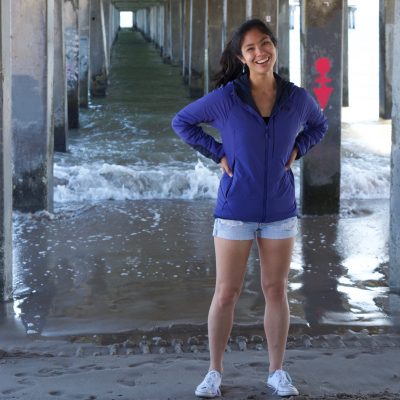Postdoc Spotlight: Claire Meaders

Claire Meaders
September 16, 2019
Claire Meaders is featured as part of Cornell’s Postdoc Appreciation Week 2019.
Claire Meaders is from Arlington, Virginia. She earned her Bachelor of Science in molecular and cellular biology from Brown University and her Ph.D. in organismic and evolutionary biology from Harvard University. At Cornell, she conducts research in the field of ecology and evolutionary biology.
What is your area of emphasis? Why is this work important?
While my background is in bench science, I transitioned to discipline-based education research (DBER) for my postdoc work. I am specifically interested in the transition between high school and college for STEM students. The first year of college is a critical time for students – in addition to adjusting to college life in general, students have to adjust to the expectations and workloads of college courses, and the different types of instruction used in large introductory courses. A large proportion of students who enter college aspiring to be STEM majors switch out of STEM after their first year, and so any insights we can gain about how to improve student learning and the student experience in gateway courses is beneficial for increasing student success and retention.
What inspired you to choose this field of study?
I actually had never heard of DBER until late in my Ph.D. Early on I knew I loved teaching and wanted that to be a large element of my career, so I focused in graduate school on finding opportunities to teach, learn about teaching, and to do K-12 science outreach to expand my skill set. On campus there were a number of different resources that I was able to get involved with. A combination of seminars, courses, and fellowships introduced me to the DBER field – and my enthusiasm for learning more about it signaled to me that that was where my future research interests were heading. I found my postdoctoral advisor by recognizing her name in a job posting from a paper I had read in a STEM pedagogy journal club. A quick Google search showed me that she had also switched from bench work into DBER, and subsequent conversations with her gave me the confidence to try it out for myself!
How has your background influenced your scholarship?
My research on the transition between high school and college hits close to home for me – when I was a first-year student I felt lost in my large introductory courses and felt like I must have been the only person feeling that way. My experience as a first-year student definitely motivates my research, and also motivates my teaching. Right now I am leading a first-year seminar where my students read biology education research papers to both learn how to read primary literature, but also to learn about evidence-based practices they can use in their own studies. This was definitely inspired by what I wish I had known as an undergraduate.
With switching fields, I was surprised (in a great way) by how many skills from graduate school translated well to my postdoc work in a different field. An ecology project I dabbled in ended up helping me learn about mixed models, which I now rely on for analyzing student data, a fellowship at the teaching center prepared me for leading pedagogy workshops, etc. My takeaway is that you never know how skills you are picking up will come in handy down the line.
What hobbies or activities do you enjoy in your spare time?
Outside of research and teaching, I still love doing science outreach and mentoring. I do like to carve out time that’s just for me each day though, and running is a great way to decompress, catch up with friends, and “run-splore” new cities. When I first started my postdoc, one of the first friends I made in Ithaca was through running, and we are currently training for a marathon this fall – it will be my 11th one! In order to balance all of the physical activity that comes with running, I bake a lot (macarons are my specialty) and spend way too much time watching baking related reality TV shows.
Why did you choose Cornell?
I came to Cornell to work with my research advisor – I love the projects we work on, and she has been a great mentor especially with navigating a new field. I have also been really impressed by Cornell’s dedication to teaching and learning – there are so many opportunities and resources for graduate students, postdocs, and faculty to come together on campus and share ideas through journal clubs, working groups, etc.
What’s next for you?
Hopefully positions where I can continue to blend teaching and research! For now I am trying to make the most of my time in Ithaca, and learn as much as I can about DBER.
Do you have any advice for current graduate students?
Think about where you are spending your time, and if in your free time you find yourself doing things that seem tangential to your Ph.D. research, there may be ways to make your “extracurriculars” your actual career after graduation. And don’t discount the transferrable skills you gain through research, teaching, and outreach!
